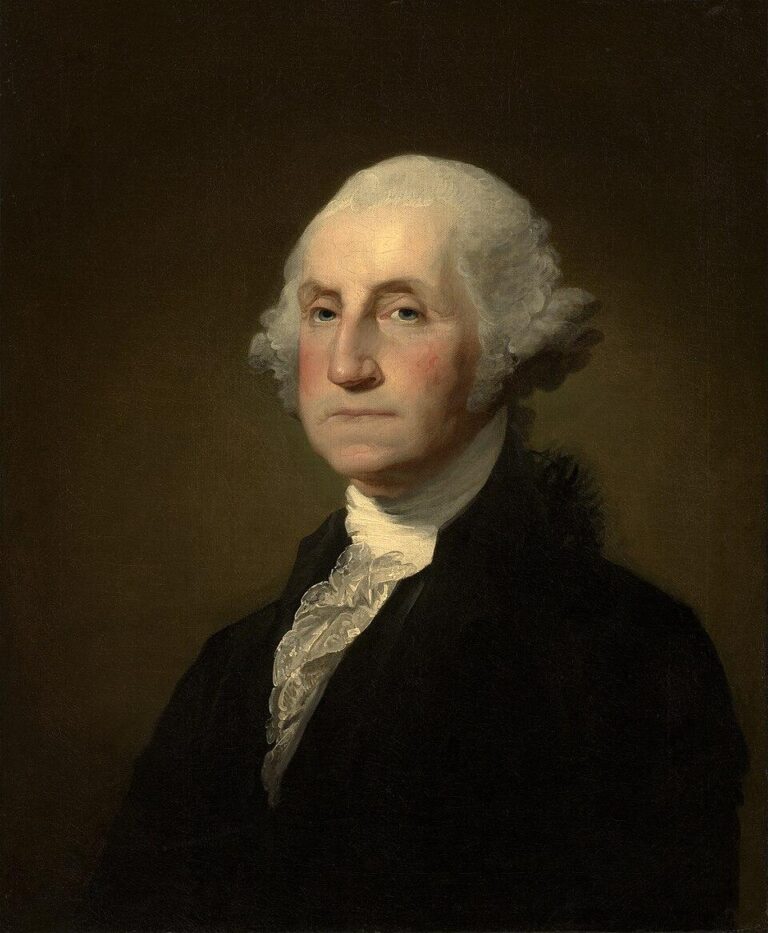George WashingtonŌĆÖs Vision and Its Resonance in TodayŌĆÖs American Political Landscape
Foreseeing the Perils of Political Factionalism
As the United States grapples with heightened political polarization and contentious public discourse, it is worth revisiting the foresight of its first president, George Washington. In his farewell address, Washington cautioned against the rise of political factions, warning that such divisions could fracture the nationŌĆÖs unity and weaken its democratic foundations. He observed that when political groups prioritize personal ambitions and rivalries over the collective welfare, they risk fostering a ŌĆ£spirit of revengeŌĆØ and deep-seated animosities that distract from effective governance.
WashingtonŌĆÖs apprehensions about parties placing sectional interests above the common good remain strikingly relevant amid todayŌĆÖs partisan gridlock. He urged citizens to:
- Champion a unified national identity to counteract societal fragmentation
- Resist excessive partisanship that impedes compromise and functional leadership
- Remain vigilant against factional leaders who manipulate public sentiment for self-serving ends
| WashingtonŌĆÖs Concern | Contemporary Equivalent |
|---|---|
| Conflicts fueled by personal rivalries | Deep partisan polarization |
| Susceptibility to foreign influence | Election interference and disinformation campaigns |
| Erosion of public trust | Declining confidence in institutions |
Modern Implications of WashingtonŌĆÖs Farewell Address
Delivered in 1796, WashingtonŌĆÖs Farewell Address continues to offer profound insights into the challenges facing American democracy today. His warning that political factions ŌĆ£serve always to distract the Public Councils and enfeeble the Public AdministrationŌĆØ echoes in the persistent legislative stalemates and partisan deadlock that characterize much of contemporary governance. Issues such as healthcare reform, immigration policy, and climate action often become battlegrounds where party loyalty overshadows national interest.
Washington also advocated for a cautious approach to foreign alliances, emphasizing neutrality to safeguard the nationŌĆÖs sovereignty. This principle remains influential in current debates over AmericaŌĆÖs involvement in international conflicts and military commitments.
| Farewell Address Focus | Contemporary Political Challenge |
|---|---|
| Political Factions | Partisan polarization and legislative impasse |
| Foreign Entanglements | Controversies over military interventions and alliances |
| Public Morality | Impact of media bias and misinformation |
| Unity Over Regionalism | Cultural and urban-rural divides |
- Advocacy for common good: Washington urged leaders to prioritize national interests above factional disputes.
- Prudent foreign policy: His counsel supports measured engagement in global affairs.
- Preservation of republican ideals: Balancing liberty with social order remains essential.
Insights from Scholars on the Growth of Political Polarization
Contemporary experts recognize that while WashingtonŌĆÖs warnings about political parties were prescient, the current landscape of division is shaped by multifaceted factors beyond his original scope. Dr. Amelia Richards, a political historian at Georgetown University, explains, ŌĆ£WashingtonŌĆÖs concerns centered on factional loyalty undermining unity, but todayŌĆÖs polarization is compounded by identity politics and fragmented information ecosystems that were unimaginable in the 18th century.ŌĆØ
- Media Evolution: The proliferation of 24/7 news outlets and social media platforms has intensified ideological echo chambers.
- Economic Inequality: Widening wealth gaps contribute to political alienation and radicalization.
- Demographic Shifts: Increasing diversity has transformed traditional party coalitions, fueling realignments.
| Influencing Factor | Effect on Political Divisions |
|---|---|
| Technological Advances | Facilitation of targeted ideological bubbles |
| Educational Trends | Increased ideological homogeneity in social relationships |
| Economic Disparities | Amplification of class-based political divides |
Professor Marcus Lyman of StanfordŌĆÖs Center for Democracy cautions against viewing WashingtonŌĆÖs message as a nostalgic call for bipartisanship. Instead, he frames it as a reminder of the ongoing challenge to harmonize individual freedoms with collective unity in an increasingly complex society. This nuanced understanding encourages a more constructive engagement with todayŌĆÖs political realities.
Applying WashingtonŌĆÖs Principles to Heal Political Divides
Inspired by WashingtonŌĆÖs emphasis on unity and the dangers of factionalism, contemporary leaders and citizens can adopt strategies that foster mutual respect and collaboration. His call to ŌĆ£banish from your councils the spirit of partyŌĆØ translates today into efforts to encourage bipartisan dialogue and cooperation. Examples include bipartisan town halls, legislative retreats focused on relationship-building, and community forums that bring together diverse viewpoints.
Implementing these ideals requires practical approaches that promote civic participation and informed discussion. The following table outlines actionable methods rooted in WashingtonŌĆÖs vision:
| Approach | Description | Anticipated Outcome |
|---|---|---|
| Nonpartisan Dialogue Forums | Platforms that unite individuals across political divides for open conversation | Improved mutual understanding and reduced polarization |
| Civic Education Initiatives | Programs emphasizing democratic values and critical analysis skills | A more informed and engaged electorate |
| Cross-Party Collaboration Workshops | Training sessions for policymakers to foster bipartisan cooperation | Enhanced legislative effectiveness and trust-building |
Conclusion: Enduring Lessons from WashingtonŌĆÖs Legacy
Reflecting on George WashingtonŌĆÖs insights reveals that although he could not have anticipated every nuance of todayŌĆÖs political environment, his warnings about factionalism and the importance of national unity remain profoundly relevant. His guidance offers a valuable historical framework for interpreting current political challenges, from partisan divides to the imperative of safeguarding democratic principles. As the United States continues to evolve, revisiting WashingtonŌĆÖs vision encourages a recommitment to the foundational ideals that have long shaped the republicŌĆÖs identity.







